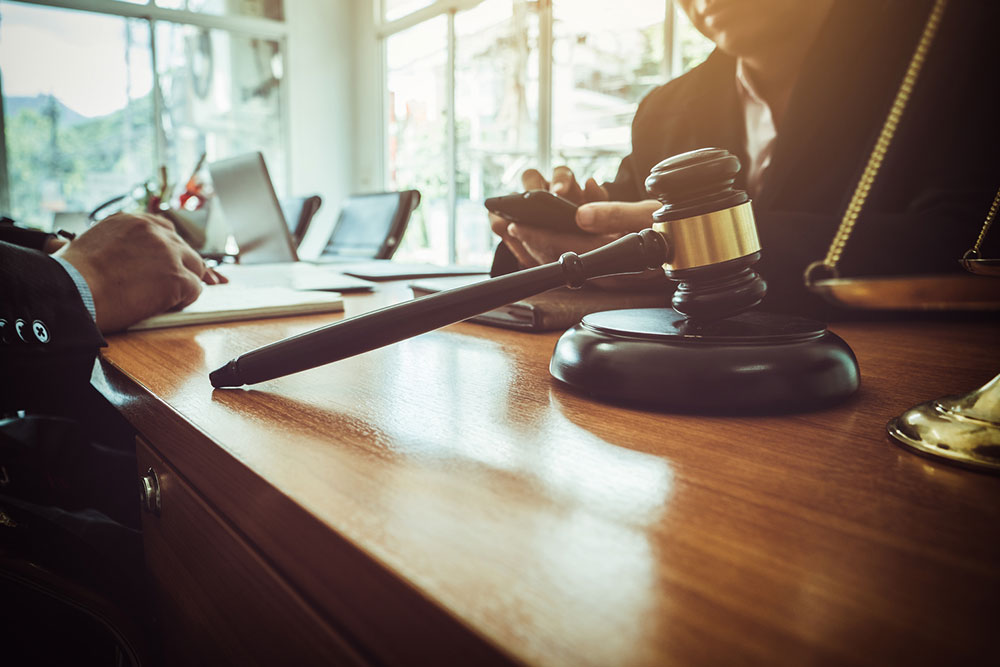Comprehensive Guide to Common Types of Personal Injury Claims You Should Know
This comprehensive article explores the main types of personal injury claims, including auto accidents, medical malpractice, premises liability, and defamation. It provides valuable insights for victims on how to navigate legal processes and secure compensation. Understanding these injury types and the legal strategies involved is crucial for effective case handling and protection of rights.

Understanding the Most Common Types of Personal Injury Claims and How to Navigate Them
Personal injury law encompasses a wide range of cases where individuals suffer harm—whether physical, emotional, or psychological—due to the negligence or wrongful acts of others. Such injuries can result from everyday accidents, medical malpractice, or intentional misconduct. The legal process for seeking compensation can be complex, requiring specialized knowledge of personal injury statutes and procedures. For victims, understanding the different types of personal injury claims is crucial to pursuing rightful compensation and ensuring their legal rights are protected.
This comprehensive guide aims to shed light on the primary categories of personal injury cases that frequently require legal intervention, offering insights into their unique aspects and the legal expertise needed to successfully navigate them. Whether you've been involved in a car accident, experienced medical negligence, fallen on unsafe property, or been subjected to defamation, knowing the fundamentals can help you make informed decisions.
1. Automobile Accidents
One of the most common and impactful types of personal injury claims involves automobile accidents. These incidents include car crashes, motorcycle collisions, truck accidents, bicycle crashes, and pedestrian injuries resulting from vehicle-related incidents. Nationwide, auto accidents account for a significant percentage of personal injury claims due to the high volume of drivers and travelers on the road.
Determining liability in vehicle-related cases can be complex. Factors such as police reports, traffic violations, eyewitness statements, and vehicle inspections often play a role in establishing fault. In many cases, insurance companies attempt to settle claims quickly, which might not always reflect the full extent of damages sustained by the injured party. This is where experienced auto injury lawyers come into play—they analyze evidence, negotiate with insurers, and may represent clients in court if necessary.
Legal issues surrounding automobile accidents often involve shared fault, comparative negligence, and insurance claim disputes. An attorney skilled in auto injury law can help victims understand their rights, ensure that medical expenses, property damages, lost wages, and pain and suffering are adequately compensated, and secure fair settlements.
2. Medical Negligence and Malpractice
Medical negligence occurs when healthcare providers, whether doctors, nurses, or hospitals, fail to provide an accepted standard of care, leading to injury or worsened health outcomes for patients. These cases are among the most complex personal injury claims because they require proving that the healthcare provider's breach of duty directly caused the injury.
Examples include surgical errors, misdiagnoses, medication mistakes, and birth injuries such as fractures or brain damage. Traumatic brain injuries resulting from medical errors demand specialized legal knowledge in both medical and personal injury law. Successful medical malpractice claims often involve detailed reviews of medical records, expert testimonies, and understanding the nuances of medical standards.
Because of the intricate nature of medical negligence cases, attorneys often collaborate with medical experts to establish negligence and causation. Compensation in these cases may cover extensive medical expenses, long-term care, emotional trauma, and loss of earning capacity.
3. Premises Liability
Premises liability law holds property owners accountable for injuries sustained due to unsafe conditions on their property. These types of claims frequently involve slip-and-fall accidents, trip-and-fall injuries, or accidents caused by dangerous property features such as inadequate lighting, wet floors, debris, or structural hazards.
To succeed in a premises liability claim, injured parties must prove that the property owner knew or should have known about the hazardous condition and failed to address it within a reasonable time frame. Gathering police reports, maintenance records, security footage, and witness testimonies helps strengthen these cases.
Injuries from premises liability incidents can be severe, including broken bones, spinal injuries, traumatic brain injuries, or even wrongful death. Attorneys specializing in premises liability work to hold property owners liable, securing compensation for medical bills, rehabilitation, lost income, and pain and suffering.
4. Defamation and Reputation Damage Cases
While often overlooked as a type of personal injury, defamation lawsuits address cases where false statements harm an individual’s reputation. Defamation includes both libel (written falsehoods) and slander (spoken falsehoods). These claims are particularly prevalent among public figures, celebrities, and business professionals trying to protect their image from malicious or negligent statements.
Successfully pursuing a defamation claim requires proving that the statements were false, damaging, and made with at least actual malice or negligence. The legal process involves demonstrating the harm caused to reputation, emotional well-being, and sometimes financial losses, such as lost business opportunities.
Understanding these different types of personal injury claims can significantly impact the outcome of a legal case. Consultation with a qualified personal injury attorney allows victims to properly evaluate their situation and pursue appropriate legal remedies to secure compensation, Justice, and peace of mind.
In conclusion, personal injury law covers a broad spectrum of cases with different legal nuances. Whether dealing with complex medical malpractice, road accidents, unsafe property, or defamation, victims should seek professional legal assistance to protect their rights and ensure they receive fair compensation for their injuries and damages.




